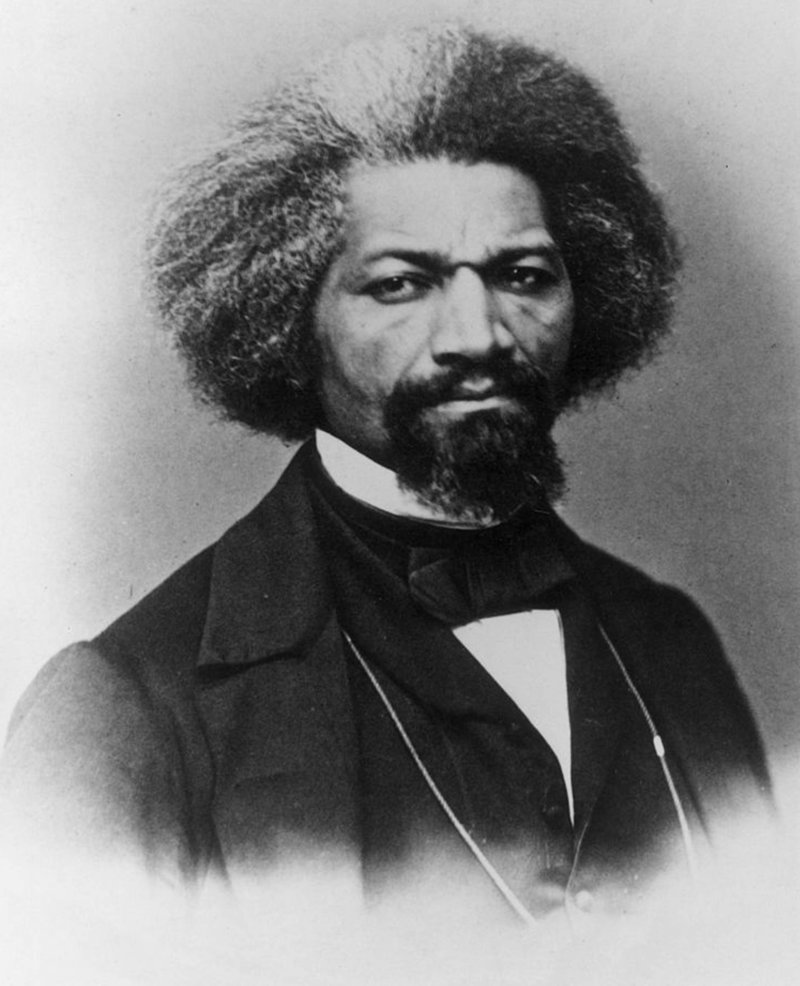Our Reading List in Honor of Frederick Douglass Day
February 12, 2021

February 12, 2021
What can we say about Frederick Douglas, the nation’s most formative abolitionist, on a day set aside to remember his impact on American society and his contributions to the racial justice movement?
There’s so much! But I’ll start by saying this.
As one of the nation’s most prolific orators and skilled writers, Douglass used his voice and pen to attack the institution of slavery and anti-Black racism. Douglass, sometimes called ‘the prophet of freedom,’ boldly challenged the nation’s hypocrisy and used his personal experience as a fugitive slave to illustrate the horrors of the evil institution.
His work reminds Movement leaders that we often carry the heavy responsibility of expanding the moral and political imaginations of our leaders, even when they think our visions of liberation will never be possible.
For all of the organizers, advocates, activists, elders and allies who are fighting on the frontlines of democracy and racial justice, we’ve assembled lesser-known Douglass speeches and writings that will motivate you to keep going. Not only are they hard hitting, but they clearly show how you can slay AND throw shade in service of freedom.
“Letter to My Old Master” was printed in the North Star on Sept 4, 1848. Douglass wrote an open letter his former master, Thomas Auld, who prior to escape, owned him in the state of Maryland. Douglass wrote,
Oh! sir, a slaveholder never appears to me so completely an agent of hell, as when I think of and look upon my dear children…Your wickedness and cruelty, committed in this respect on your fellow-creatures, are greater than all the stripes you have laid upon my back or theirs. It is an outrage upon the soul, a war upon the immortal spirit, and one for which you must give account at the bar of our common Father and Creator…. I intend to make use of you as a weapon with which to assail the system of slavery-as a means of concentrating public attention on the system, and deepening the horror of trafficking in the souls and bodies of men.
In this must-read autobiography published in 1855, Douglass reflects on his life following his legal emancipation in 1846. Douglass had become an internationally celebrated speaker and newspaper editor. On how slavery destroyed Black families, Douglass had this to say:
There is not, beneath the sky, an enemy to filial affection so destructive as slavery. It had made my brothers and sisters strangers to me; it converted the mother that bore me, into a myth; it shrouded my father.
In a speech delivered in June 1863, Douglass spoke what the future may hold for Black people. He said,
Now, I hold that there is but one way of wisely disposing of the colored race, and that is to do them right and justice. It is not only to break the chains of their bondage and accord to them personal liberty, but it is to admit them to the full and complete enjoyment of civil and political equality.
In a speech made to the nation’s Black leaders in 1864, Douglass said,
In the name of your country, torn, distracted, bleeding, and while you are weeping over the bloody graves of more than two hundred thousand of your noblest sons, many of whom have been cut down, in the midst of youthful vigor and beauty, we [Black people] implore you [white people] to abolish slavery. In the name of peace, which experience has shown cannot be other than false and delusive while the rebellious spirit of Slavery has an existence in the land, we implore you to abolish slavery. In the name of universal justice, to whose laws great States not less than individuals are bound to conform, and the terrible consequences of whose violation are as fixed and certain as the universe itself, we implore you to abolish slavery; and thus place your peace and national welfare upon immutable and everlasting foundations.
On April 16, 1883, Douglass addressed the 21st anniversary of emancipation in Washington, DC. He stated,
What Abraham Lincoln said in respect of the United States is as true of the colored people as of the relations of those States. They cannot remain half slave and half free. You must give them all or take from them all. Until this half-and-half condition is ended, there will be just ground of complaint. You will have an aggrieved class, and this discussion will go on. Until the public schools shall cease to be caste schools in every part of our country, this discussion will go on. Until the colored man’s pathway to the American ballot box, North and South, shall be as smooth and as safe as the same is for the white citizen, this discussion will go on. Until the colored man’s right to practice at the bar of our courts, and sit upon juries, shall be the universal law and practice of the land, this discussion will go on. Until the courts of the country shall grant the colored man a fair trial and a just verdict, this discussion will go on.
In 1893, the first world’s fair, then known as The World’s Columbian Exposition, opened in Chicago. Movement leaders like Douglass and Ida B. Wells were incensed at the way European culture was intentionally juxtaposed to demeaning representations of Black and Native Americans. To clap back, they wrote an epic pamphlet on why the culture of colored Americans were insufficiently displayed at the fair. Long story short? It was slavery. They wrote,
We have long had in this country, a system of iniquity which possessed the power of blinding the moral perception, stifling the voice of conscience, blunting all human sensibilities and perverting the plainest teaching of the religion we have here professed, a system which John Wesley truly characterized as the sum of all villainies, and one in view of which Thomas Jefferson, himself a slaveholder, said he “trembled for his country” when he reflected “that God is just and that His justice cannot sleep forever.” That system was American slavery. Though it is now gone, its asserted spirit remains.
In July 1892, Douglass published “Lynch Law in the South” in the North American Review, a newspaper he edited later in life. He wrote,
I have been frequently asked to explain this phase of our national problem [a revival of lynch law in the South]. I explain it on the same principle by which resistance to the course of a ship is created and increased in proportion to her speed… The negro meets no resistance when on a downward course. It is only when he rises in wealth, intelligence, and manly character that he brings upon himself the heavy hand of persecution….Hence the mob and hence the murder. When the Negro is degraded and ignorant he conforms to a popular standard of what a negro should be. When he shakes off his rags and wretchedness and presumes to be a man, and a man among men, he contradicts this popular standard and becomes an offense to his surroundings.
In this 1894 speech, Douglass spoke plainly about the use of lynching to terrorize Black Americans and prevent them from building social or political power. He said,
The perceived loss of that power drove men now to lynch mob and ritual killings. Too many white southerners still lived by a slaveholding mentality: their institutions have taught them no respect for human life, and especially the life of the Negro.
This comprehensive biography on Douglass by David Blight is worth the 700-page read. It won the Pulitzer Prize in 2019 for History and is accurately described as,
a breathtaking biography that demonstrates the scope of Frederick Douglass’ influence through deep research on his writings, his intellectual evolution and his relationships.
And as a bonus for reading to the very end, here are a couple of quotes from Frederick Douglass that I encourage you to reflect on as we honor him today:
